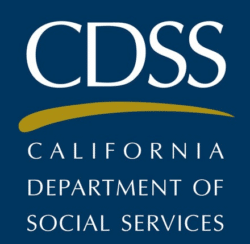


Created from the word “experience,” experiential therapy is designed to recreate real-world experiences. These interactive opportunities don’t take place in a traditional office setting like many talk therapies do. Experiencing situations helps bring awareness of feelings, attitudes, and beliefs that are considered subconscious. At D’Amore Healthcare™, we apply this nontraditional psychotherapy approach to our mental health treatment programs.

Our mental health treatment center in Orange County offers residential treatment that provides a safe, structured environment for undergoing care. Your medical and psychological history is analyzed by our mental health professionals before customizing your treatment plan. Experiential therapy can provide the experiences you need to become self-aware and control your mental health condition. We are pleased to offer this form of therapy and have witnessed the success it has brought our patients.
The main idea of experiential therapy is for people to properly process and express their thoughts and feelings in certain situations. This therapy approach involves various techniques to recreate these particular experiences.
During these experiences, people face their emotions head-on and focus on the experience, understanding, and truth behind their feelings. These specific, personal interactions (with people, animals, or art) allows them to express themselves and recognize how emotions influence behavior.
Under the term experiential therapy is a number of different therapeutic forms of therapy. This includes Gestalt therapy, dynamic therapy, and methods of cognitive behavioral therapy. Alternative types of experiential therapy include animal-assisted therapies (such as equine-assisted therapy), psychodrama, art therapy, music therapy, and others.
These different therapeutic interventions and therapies offer actual involvement with different types of situations that go beyond traditional talk therapy. For example, interactions with others, emotional processing, reflections of events, and creativity are all part of this treatment. Ultimately, these therapy programs help people become aware of their interpretations of the world.
An experiential therapist may use these recent expressive therapies, which include:
Using drama or theater to help people reach their therapeutic goals. This may include a person acting out a personal story or interacting with other people in the form of a play.


The psychological and educational benefits of role-playing include social skills and teamwork. Family members of the person with a mental health disorder or substance use disorder can benefit from role-playing. For example, practicing possible situations like cravings, relationship problems, and other experiences can help everyone’s social skills.
This involves using the help of animals to reach therapeutic goals. When horses or dogs are part of therapy, a person can learn how their interactions and behaviors affect the animal. Moreover, they can learn how to care for the needs of others.


Sometimes, when a person is battling a mental health issue, they struggle with expressing themselves with words. Arts and crafts are a good outlet to reveal their thoughts and feelings. Using images or artistic activities like painting or sculpting can develop awareness, which in return will reduce any negative thoughts.
This approach requires participating in cooperative games, wilderness, or nature immersion. Taking a walk, listening to nature, or creating art in a scenic place can decrease stress, anxiety, and depression. Evidence-based research has proven that a natural environment promotes calmness.


Music is a universal language that holds emotions that can be difficult to put into words. For this reason, listening, playing, or making music can be therapeutic. Studies have shown how this approach provides a healing outlet and promotes positive behavior change.
Certain mental health disorders require medication, while others demand therapeutic treatment, and some might require both. People can benefit from talk therapy such as CBT, or DBT, while others much rather prefer a more hands-on experience. Some criteria that makes a good fit for experiential therapy may include:
He or she is a well-rounded learner. If a person is strictly a visual or a hands-on learner, experiential learning may be challenging. However, if a person integrates all five senses to learn, they can benefit significantly from this therapeutic experience.
The person wants the family to be involved. Certain talk therapies involve family members to join and discuss current issues and problem-solving. Experiential therapy can help make it a bonding experience, rather than rehashing old wounds.
The person prefers to express themself in other ways. There is no doubt that verbal expression in therapy can be helpful when battling a mental health condition. Despite this, people can still be uncomfortable opening up about their lives. This therapy technique can help people who want to learn through new experiences, rather than having painful discussions.
When you suffer from a mental health condition, there are psychological thoughts and feelings you are not aware of. This can make you feel “stuck” and not know how to move forward. Experiential therapy can help you overcome certain attitudes and behaviors that are caused by a mental health issue.
Here in Orange County, our inpatient mental health facility offers various forms of therapy treatment including experiential therapy. If you or a loved one is battling a mental health disorder, give us a call today. Proper treatment can help heal everyone that is directly or indirectly involved with the condition. Our licensed mental health professionals can help you get started on your journey to mental wellness.




















